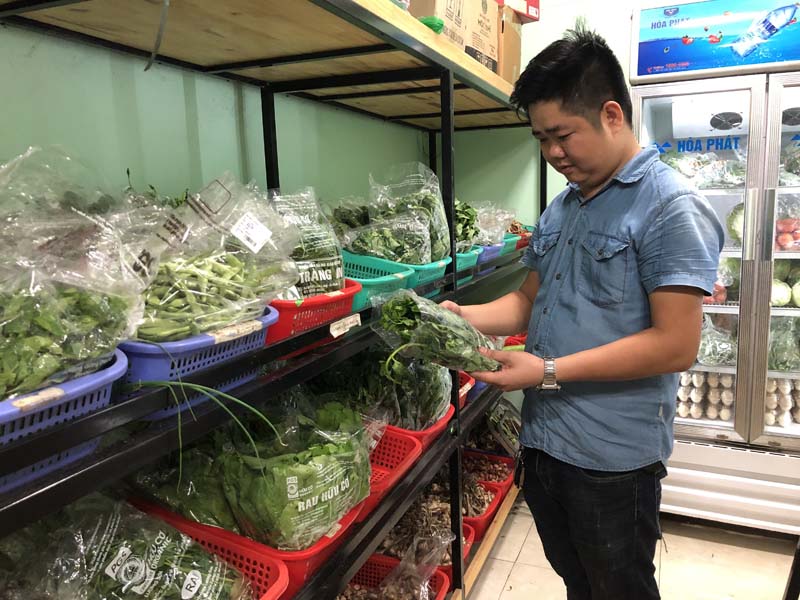


 The Hoa Binh safe food
shop in Phuong Lam ward of Hoa Binh city provides safe agro-forestry-fishery
products, winning consumers’ trust.
The Hoa Binh safe food
shop in Phuong Lam ward of Hoa Binh city provides safe agro-forestry-fishery
products, winning consumers’ trust.
Hoa Binh province has implemented a number of measures to introduce its safe agro-forestry-fishery products to consumers.
In order to ensure the quality, hygiene and safety for agro-forestry-fishery products, an inter-sectoral inspection delegation, formed following Decision 315/QD-SYT, checked 18 food production and trading facilities, including 13 canteens, four food shops, and one food processing and trading establishment.
The inspections aimed to evaluate the quality, hygiene and safety of high-risk product groups such as vegetable, rice, meat, aquatic products, with a focus on assessing and monitoring the quality of food in canteens of schools and agencies consuming a large amount of food.
The strengthening of management and control over the quality of agro-forestry-fishery products in the province has helped improve the awareness of production and trading facilities about law abidance, thus ensuring the quality of the products.
Some individuals and businesses have invested in production chains to produce and trade safe food, while building and applying quality management systems before selling their products, meeting the demand of consumers.
Nguyen Huu Tai, head of the Sub-Department for Agro-Forestry-Fishery Quality Management of Hoa Binh, said the agency has built a plant to inspect agricultural materials and equipment as well as food safety in 2019 in order to enhance the quality of agro-forestry-fishery products.
In the future, along with communication activities, inter-sectoral and specialised inspection delegations of the province will continue to supervise and certify food hygiene and safety as well as management quality standards of VietGAP and GMP for production and business facilities.
The province will certify safe food chains in accordance with the regulations, while increasing the test of food samples, especially for fresh food on the market, thus timely detect the risk of food hygiene and safety violations./.